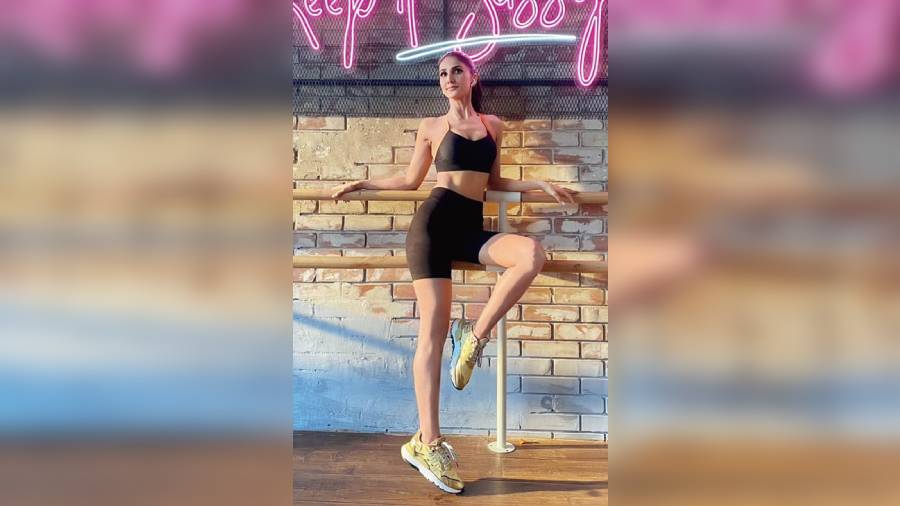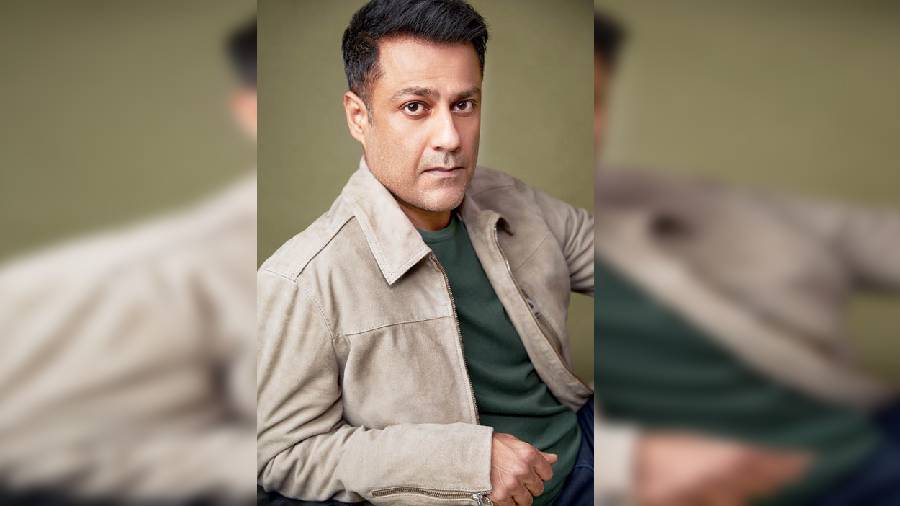Abhishek Kapoor is earning some well-deserved praise for handling a sensitive subject in a relevant manner in Chandigarh Kare Aashiqui. We chatted with the man behind films like Rock On!! and Kai Po Che! to know about the genesis of his latest film, starring Ayushmann Khurrana and Vaani Kapoor and now playing in theatres, and why it’s an important story to tell.
Members of the LGBTQ community have praised Chandigarh Kare Aashiqui for not only bringing their story into the mainstream, but also for doing it sensitively. That must be a high....
For sure! Nothing can beat the fact that people from the trans community have stood up and owned the film. The community itself is so fragile and they don’t trust easily. That’s quite natural, given that their representation in our films has traditionally been so poor. And so they are always apprehensive when someone is making a film on them. You can meet them, you can do research, but one hardly gets their stamp of approval, which is very, very crucial.
So I feel very happy that people from the community have embraced the film. Like (screenwriter) Gazal Dhaliwal, who is a trans woman. She saw the film for what it is, and that meant a lot to me and the effort we all put in to make the film. Other than that, Hrithik Roshan loved it. He’s such a pure guy... what he feels is straight from the heart and he puts it out there. His words about how he felt about the film just blew me away.
What was the genesis of the film?
In 2017, a lady called Simran Sahni came to meet me. She started narrating a subject to me and the transgender element came in. It was a good story, but it was going down the serious route. But the idea fascinated me and it stayed with me. I finished Kedarnath and that idea was still simmering in my head. I figured that the right way to tell it was that it had to come from the other side... it shouldn’t emerge from the trans community. That was just the way I saw it... I wanted it to be from Manu’s (played by Ayushmann Khurrana) point of view because the message had to reach the people on the other side. The trans community is already aware of their pain and struggles, but the awareness of that had to be created among the other people in society.
When I started to film, it was then that I realised that Simran Sahni herself has twin boys who are both transitioning into girls. A lot of people ask me why I spent three years with this film — two years writing it, one year making it — and my answer to that is that it came from a very, very pure place. I have always believed that I don’t choose my films, my films choose me....
Is the lighthearted approach the route you always wanted to take?
When I did my research, I discovered the kind of painstaking journey that people who have made a gender transition go through. And there are also people who don’t get the opportunity to make that transition. When you get into that world, you realise that these people are incredible. The LGBTQ community, as a whole, is incredible because they have to constantly fight for their existence in a society that bullies and rejects them. They have existed ever since the world started, and at some point, society decided to separate them and say that they are wrong. But it’s such a natural existence.
Many films have been made on them, but since it’s mostly from people within the community, it has a certain pain in it and somehow it doesn’t travel to the other side. There is so much pain and anguish that it just gets rejected upfront and doesn’t reach a wider audience. So it was important that this film be told in a way, that in its voice and tone it had to be such, that a large section of viewers could relate to it. It needed to be inviting.
Outrage is very instant in today’s world. Were you apprehensive at any point about deep-diving into such a sensitive subject?
I have been asked this, but I went with my gut. I know that this is a delicate issue, but I have handled delicate matters before. Kai Po Che! told a friendship story against the backdrop of the 2002 Hindu-Muslim riots. Even Kedarnath was set in Kedarnath, which is one of the most significant and sacred temples in the country, and it had a Muslim protagonist (played by Sushant Singh Rajput). I have waded into these waters before (smiles).

Vaani Kapoor
What made you pick Ayushmann and Vaani for their parts?
Ayushmann is a champion of these kinds of movies. I thought it was very important to have someone who stands for this kind of cinema. We shot the film just after the first lockdown. Normally, Ayushmann has a lot of films lined up. But because everything was shut, he was also at home and I thought it would be a good time for him to (physically) train and come back with a new image. Although it is Ayushmann, it is a reboot. I also think there has been a shift in the world on account of Covid-19. People, in general, now have more open minds, and I thought this a good time to get this subject out there. Pre-Covid, I feel it would have been a long jump to make this movie.
Honestly, I didn’t think most mainstream leading ladies would take this part. They are so cautious about their image and I am sure they wouldn’t want to get stigmatised in any way. But Vaani, in the way she responded to the script, I could make out that she felt for Maanvi. She was a little concerned about how it would be played out and we had a few conversations. She really trusted me with it.
Did you always want this title?
No, there was another title I had in mind, and the film was initially set in Delhi. Chandigarh and Delhi are not very different and because of Covid, we decided to move it to Chandigarh. Ayushmann suggested this title and I thought it would work because it’s a very mainstream, generic title.... Any rom com could be made with this title and by giving the film this name, our attempt was to normalise this subject.
See, I have lived with this subject for so long that it’s become normalised in my system. So how do I make a film that says, ‘Oh, look at their pain, look at their struggle!’ I can’t see it like that anymore, and I felt the title fitted in perfectly.
This was also a zero-waste set. Can you please elaborate? Your wife Pragya Kapoor, who is also a producer on the film, is, of course, a champion for the preservation of the environment....
Look at where the world is going as far as the environment is concerned. We have to contribute in some way or the other. We had a recycling team on set. Film sets cough up a lot of waste, and this became even more during the pandemic. Everything that we used on set was reused... PPE kits were recycled and made into bricks, leftover food was sent to the needy.... That we could make this a zero-waste set was fabulous.
Congratulations for 15 years in the business as a film-maker. I know that every film is tough to make, but which has been the most challenging?
Every film has been a different experience. I come out as a different person from every film I make. My intent has always been to serve the script, not to serve myself as a director. I walk into every world of a film humbly and I allow it to tell me what needs to be done. They have all been very tough, however big or small a film has been. I shot Kai Po Che! in 50°C in Gujarat... Kedarnath we shot going up a mountain with a crew of 200 people for a month. Even Fitoor was a tough film to shoot, shooting in that weather in Kashmir.
Logistics apart, Kai Po Che! dealt with a very sensitive subject and Kedarnath was set against the Uttarakhand floods in which so many people died. And Chandigarh Kare Aashiqui is about the trans community who are not understood at all, they are in the dark. They are very evolved people whose inclusion is very important for our society. I am not talking about a token acknowledgement, I am talking about being far more exclusive.
You started off in front of the camera. Is acting not on the cards at all anymore?
Nothing has come my way (laughs).
I am asked if I want to act in my own films, but I don’t know how to be in two places at the same time....
Did you enjoy that part of your life?
No, I didn’t enjoy the process and it kind of scarred me. I started acting in the ’90s and mediocrity was peaking at that time. I found myself to be really out of place. Today, I see the environment actors are in and the kind of stories being told... we had nothing like that back then. There was some good films made of course, but overall it was a crappy time.










